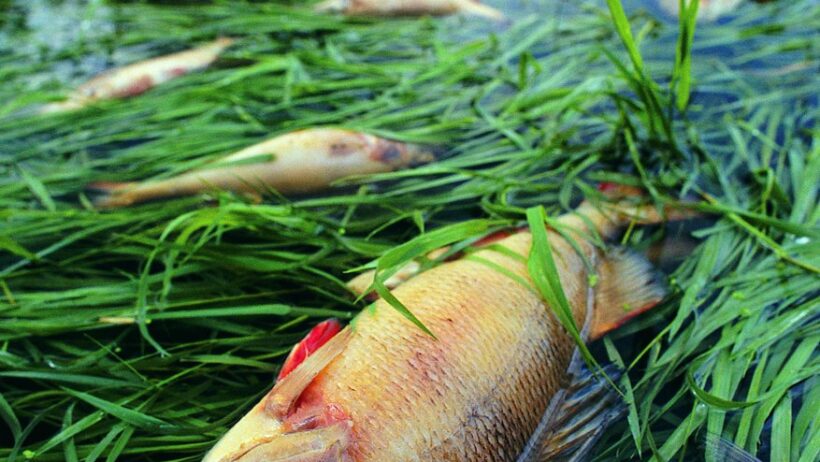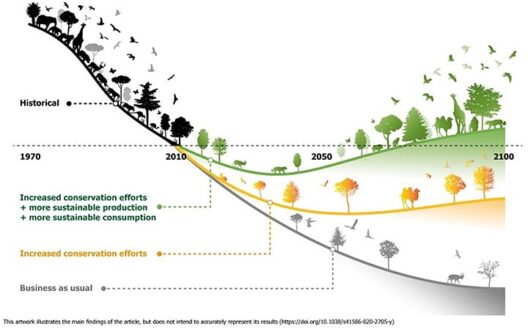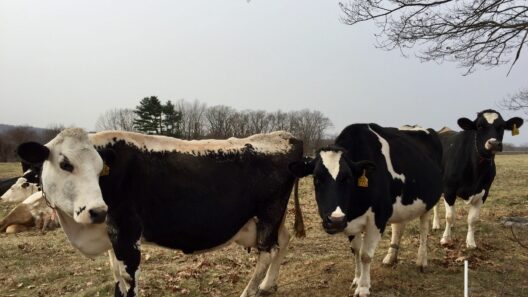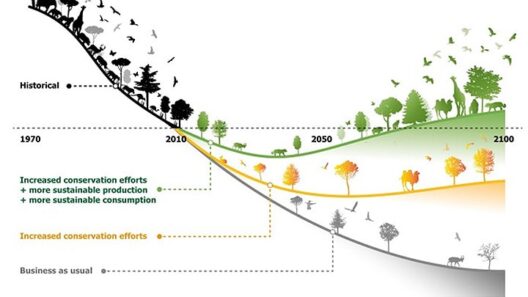The intricate web of life on Earth is sustained by a delicate interplay between various ecosystems, each harboring diverse species and functioning under specific biophysical conditions. However, the relentless march of human activity has led to significant, often detrimental impacts on these ecosystems, reshaping the very framework that supports life. This compendium delves into the myriad ways in which human endeavors influence ecosystems, examining both direct and indirect consequences.
Foremost, habitat destruction stands as one of the most glaring outcomes of anthropogenic activities. Forests, wetlands, and grasslands are being depleted at an alarming rate, primarily due to urbanization, agriculture, and infrastructural development. When these habitats are obliterated, countless species face extinction. The loss of biodiversity does not just concern the species themselves; it jeopardizes the resilience of ecosystems to withstand environmental stressors. A diminished gene pool reduces adaptability to climate change, diseases, and other ecological perturbations.
More than mere habitation, ecosystems provide essential services that sustain human civilization. This phenomenon includes carbon sequestration, water filtration, soil fertility, and pollination. The destruction of these habitats leads to the degradation of these services. For instance, wetland drainage for agricultural expansion results in diminished flood protection and compromised water quality. As wetlands are vital in absorbing excess rainwater and filtering pollutants, their eradication exacerbates conditions for flooding and pollution downstream, ultimately jeopardizing human habitations.
Moreover, pollution, another consequence of industrial and agricultural practices, has far-reaching consequences for both life and ecosystems. Contaminants, such as heavy metals, plastics, and agricultural runoff, seep into waterways, harming aquatic life and disrupting food chains. For example, nutrient pollution leads to algal blooms, which deplete oxygen levels in the water and cause dead zones where no aquatic life can survive. These phenomena not only impact fish populations but also diminish the livelihood of communities reliant on fishing.
Climate change, driven predominantly by greenhouse gas emissions from human activities, acts as a universal stressor affecting ecosystems globally. Alterations in temperature and precipitation patterns are reshaping where species can thrive. Elevating temperatures may lead to the extinction of species unable to adapt, while altering migration patterns and reproductive cycles. Coral reefs, crucial for coastal ecosystems, face bleaching due to rising sea temperatures. This, in turn, threatens the myriad species that depend on those reefs for habitat and food.
Invasive species, often introduced by human activities, disrupt local ecosystems by outcompeting native species for resources. They can alter nutrient cycles, modify habitats, and even bring about disease. The introduction of the zebra mussel into North America illustrates the potential havoc caused by invasive species. These mollusks not only outcompete native mussels but also cause significant damage to infrastructure by clogging water intake systems. The repercussions ripple through the ecosystem, affecting other species reliant on the native mussel populations.
Human activities extend beyond direct environmental impacts to shape ecological phenomena indirectly. Land use changes can alter the hydrological cycles, influence soil composition, and affect local microclimates. Urbanization, with its concrete jungles and sprawling suburbs, engenders a phenomenon known as the urban heat island effect, raising temperatures in cities compared to surrounding rural areas. This not only changes local weather patterns but also affects species distributions, favoring those adaptable to higher temperatures while disadvantaging others.
Furthermore, the fragmentation of ecosystems poses another significant challenge. Roads, buildings, and other developments divide habitats, isolating populations and impeding the movement of species. This isolation undermines genetic diversity, as smaller populations become more susceptible to inbreeding and the deleterious effects that accompany it. Fragmentation can also create barriers to migration, crucial for species that depend on seasonal movements for feeding or breeding, thereby threatening their survival.
These upheavals provoke a cascade of unintended consequences. For example, the decline of pollinator species due to habitat loss and pesticide use poses an existential threat to global food production. Many crops depend on pollination, and without it, yields diminish and food prices escalate, leading to potential food insecurity. The intrinsic connection between ecosystem health and human well-being is starkly evident: a compromised ecosystem can reverberate through economic systems, public health, and social equity.
Beyond ecological and economic impacts, there exists a profound cultural and spiritual dimension tied to the natural world. Many communities, particularly Indigenous peoples, see their identities intertwined with their ecosystems. Loss of land and the degradation of ecosystems strips these communities of their heritage, traditional practices, and cultural ties to the environment. They often possess deep-rooted knowledge of their surroundings, which can offer insights into sustainable practices and conservation strategies. Disregarding their connection to the land is not only a disservice to these communities but hampers collective efforts to combat ecological degradation.
In light of these pervasive challenges, the imperative for advocacy and action becomes glaringly clear. Conservation strategies integrated with sustainable development practices can mitigate some of these impacts. Establishing protected areas, fostering restorative practices, and implementing policies that target pollution reduction encapsulate steps toward a more resilient future. Engaging communities in stewardship initiatives empowers individuals to take action and promotes a collective sense of responsibility toward environmental conservation.
The pressing need for comprehensive strategies to protect ecosystems is underscored by an undeniable truth: our survival is intrinsically linked to the health of the planet. As stewards of Earth, society must confront the consequences of human impact and work collectively towards a sustainable coexistence with natural ecosystems. In doing so, one can hope to foster resilience, preserve biodiversity, and secure a thriving planet for generations to come.








